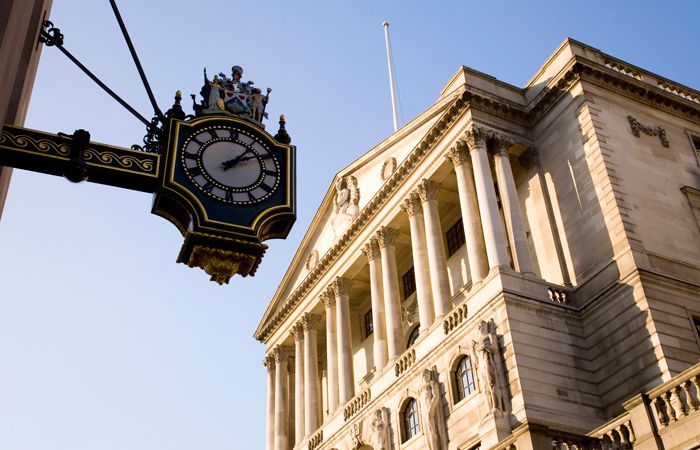
The Bank of England (BoE) has increased the base rate from its historic low of 0.10% to 0.25%.
The Monetary Policy Committee (MPC) voted 8-1 for the first increase since August 2018.
Many market watchers believed the MPC would wait until the start of 2022 to raise rates, especially after it defied expectations in failing to do so last month.
The MPC minutes show that GDP expectations for the final quarter of this year have been revised down by half a percentage point since November, with blame lying in supply chain disruption, labour shortages and, to a certain extent, the Omicron variant.
It explains: “The experience since March 2020 suggests that successive waves of Covid appear to have had less impact on GDP, although there is uncertainty around the extent to which that will prove to be the case on this occasion,” the MPC says.
Yesterday, figures showed the annual Consumer Price Index inflation at 5.1%, the highest reading since September 2011.
This requires BoE governor Andrew Baily to write a letter to the treasury explaining why inflation has exceeded its 2% target. Supply chains and labour forces are mentioned, along with inflation in accommodation and catering services and rising energy costs.
In the letter, Bailey adds that inflation will likely peak at “around 6%” in April 2022, “one percentage point higher than expected in the November 2021.”
Earlier this month, a survey carried out by the BoE showed that the public is losing confidence in its approach to inflation, and has been doing so over the last three quarters.
The MPC minutes add that the unemployment rate had fallen to 4.2% in the three months to October, and is expected to tick further downwards to 4% in the final quarter of this year, lower than the 4.5% predicted.
“There was little sign in the available data that the closure of the Coronavirus Job Retention Scheme at the end of September had led to a weakening in the labour market,” the MPC cheers.
Knight Frank Finance managing partner Simon Gammon says: “By raising the base rate it’s clear that the BoE believes the economy will shrug off most of the effects of Omicron.
“Getting a grip on rising inflation appears to be the number one priority. Mortgage rates on the high street have been edging upwards during recent weeks in anticipation of this moment and it’s clear the lenders believe there could be at least one more hike in the base rate next year.”
And Fine & Country managing director Nicky Stevenson comments: “While a rate increase has been clearly signposted for some time, many will be surprised that the move has come just days before Christmas, and amid the current uncertainty caused by the spread of the Omicron virus.
“However, such a minor increase isn’t going to impact the property market significantly. Currently, more than three quarters of homeowners are locked into fixed rate deals, so will be unaffected for the time being.
“The real significance of this rise surrounds whether it marks a genuine change in direction for the BoE but that won’t be known for some time. The pace and frequency of rate rises is the big unknown but this move will focus the minds of borrowers on extending the length of the fixed rate deals they lock into.
“The markets are currently pricing in further increases to around one per cent before the end of next year. This is unlikely to knock the housing market completely off balance.”
Habito chief finance officer Martijn van der Heijden gives a run-down of what to expect regarding further rises: “The MPC hints at this in its statement by warning that ‘tightening of monetary policy over the forecast period is likely to be necessary’.
“Economists had already forecast a second rise to 0.5% in spring 2022, hitting 1% by the end of 2022. The Office of Budget Responsibility has predicted that rates could reach 3.5% by 2023. This means we may be seeing the beginning of the end of the era of record-low interest rates.
“If so, a rising base rate environment is something many homeowners have never experienced. Anyone who’s bought a home in the last 12 years has only ever had a mortgage during a time when base rates were 1% or below.
“Given that 74% of UK homeowners are on a fixed rate deal, any discomfort from today’s base rate rise will be felt in the future, when their current deal ends. However, the concern is that if the bank does need to raise rates several times over the next 12 to 24 months, when homeowners do come to remortgage, prices could be much higher than where they are now.”
“A small step in the right direction, hopefully to be followed by others in 2022,” posted former MPC member Andrew Sentance on Twitter.



